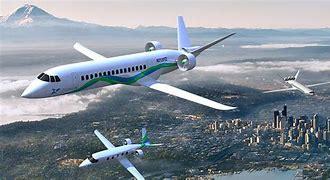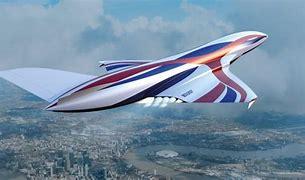Results: Electric Plane Technology
Published on 04/21/2023
NASA believes it has cracked the code in the quest to make electric planes a more viable technology.
Researchers at NASA’s Solid-state Architecture Batteries for Enhanced Rechargeability and Safety (SABERS) have created a high-performing battery that they believe can both hold enough electricity and discharge it fast enough to efficiently power an electric aircraft. TheCoolDown is the source for this survey

QUESTIONS
GO to COMMENTS
Comments
1.
1.
Battery performance has long been a roadblock in the development of more sustainable electric airplanes. While lithium-ion batteries currently dominate the battery technology space, NASA has used a different type of battery called a "solid-state battery" that is lighter and can store more power than lithium-ion batteries. The solid-state battery isn't new, but the technology has not been suitable for use in large electronics until SABER's recent discovery. Are you familiar with this new innovation?

Yes
11%
223 votes
No
71%
1497 votes
Undecided
18%
380 votes
2.
2.
Another key advantage that lithium-ion batteries have long held over solid-state batteries is that they can discharge power much faster than solid-state batteries. SABER says it has addressed this issue with a new innovation that is able to increase a solid-state battery's discharge rate by a factor of 10 — and then by another factor of five. Does this innovation sound promising?

Yes
35%
745 votes
No
19%
393 votes
Undecided
46%
962 votes
3.
3.
"We're starting to approach this new frontier of battery research that could do so much more than lithium-ion batteries can," said Rocco Viggiano, principal investigator for SABERS at NASA's Glenn Research Center in Cleveland, in a press release. "Not only does this design eliminate 30 to 40 percent of the battery's weight, it also allows us to double or even triple the energy it can store, far exceeding the capabilities of lithium-ion batteries that are considered to be state of the art," he added. Would you ever fly in an electric airplane once all of the safety and battery issues are solved?

Yes
21%
445 votes
No
32%
676 votes
Undecided
47%
979 votes
4.
4.
Because lithium-ion batteries contain highly flammable liquid that is prone to leakage, each battery cell is kept in its own steel case, which adds weight. And, when damaged, lithium-ion batteries can still catch fire. Solid-state batteries, on the other hand, can still be used even when they're damaged. They also don't contain liquids, so they can be stacked vertically in one casing, which maximizes space and lightens the load of the battery. We live in exciting times for scientific innovation that solves a myriad of social problems. Do you agree?

Yes
42%
889 votes
No
17%
366 votes
Undecided
40%
845 votes
COMMENTS

